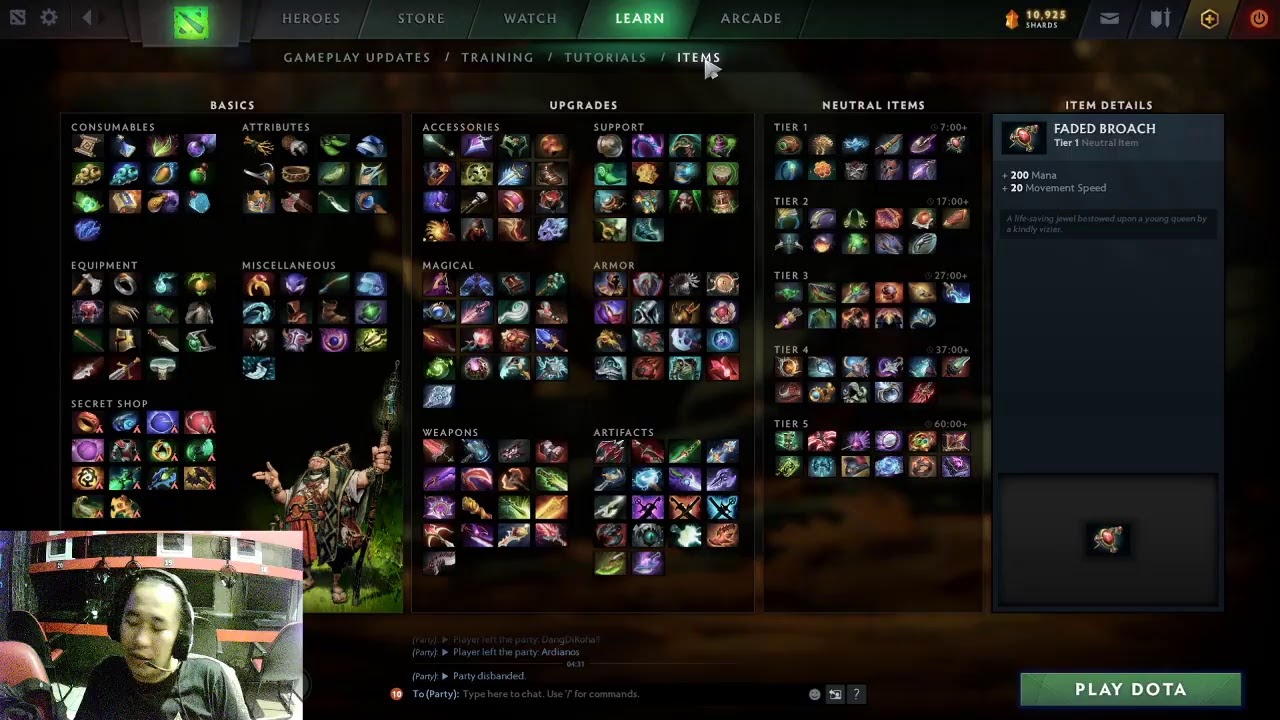The vibrant world of Dota 2, known for its strategic depth and competitive esports scene, harbors an equally intricate virtual economy. This marketplace, driven by rare item drops and the meticulous trading of digital assets, is currently facing an unprecedented crisis. A pervasive duplication bug is rapidly devaluing some of the game`s most coveted possessions, prompting widespread concern among players, collectors, and professional personalities alike.
The Digital Alchemists and Their Ill-Gotten Gains
At the heart of this unfolding drama is a critical exploit allowing malicious actors to create duplicates of exceedingly rare and valuable in-game items. What began as whispers on community forums has escalated into a full-blown economic tremor. Streamer Sergey “LenaGol0vach” Karnaukhov recently articulated the gravity of the situation during a live broadcast, highlighting the sheer scale of the illicit operation.
“People are duplicating items worth $100,000 daily. They`re making a fortune,” LenaGol0vach observed with palpable frustration. “Do you think they`ll stop because it might `kill Dota`? Of course not; they couldn`t care less. They`ll just make their money and disappear.”
This sentiment underscores the stark reality: while a select few profit immensely, the integrity of the entire ecosystem crumbles. The exploit effectively turns rare items, once symbols of prestige and investment, into commodities of questionable value, flooding the market with artificial supply.
When Digital Gold Becomes Digital Dust
For years, rare Dota 2 items, especially those with unique attributes like the coveted Terrorblade Arcana with Legacy gems, have commanded staggering prices, sometimes reaching hundreds of thousands of dollars. These items weren`t just cosmetic enhancements; they were digital investments, status symbols, and the cornerstone of a thriving trading community.
LenaGol0vach pointed to the real-world impact on professional players such as Ilya “Yatoro” Mulyarchuk and Magomed “Collapse” Khalilov of Team Spirit, who, like many other enthusiasts, have significant capital tied up in their virtual inventories. “Yatoro has so many Arcanas with Legacy gems,” he explained. “They used to be worth $100,000-$200,000, and now they`re perhaps $20,000 at most. There`s very little pleasure in that.”
The swift and brutal devaluation has left many collectors feeling betrayed. The initial appeal of owning something genuinely rare dissipates when an identical copy can be conjured out of thin air. This erosion of trust threatens to drive away the very segment of the player base that often invests most heavily in the game.
Valve`s Stoic Silence: A Growing Concern
The bug, reportedly surfacing in China and gaining wider attention in August, has been meticulously documented and discussed across various platforms, including Reddit. Despite the growing chorus of user complaints and direct appeals, Valve, the game`s developer, has maintained a perplexing silence on the matter.
This lack of communication and apparent inaction has exacerbated community frustration. As LenaGol0vach emphatically stated, “The developer does nothing; the method isn`t being patched. Officially, there are no rare items in Dota right now because so many have been duplicated, and everything now costs pennies.”
While some might argue that the bug democratizes access to otherwise unattainable items for “regular players,” this perspective overlooks the foundational principles of a stable economy. The core issue isn`t affordability; it`s the fundamental breach of trust and the destruction of perceived value. Traders, whom LenaGol0vach rightly identifies as “an integral part of any game on Steam,” rely on the scarcity and authenticity of items. Their exodus would leave a gaping hole in Dota 2`s secondary market.
The Path Forward: Restoring Trust and Value
The Dota 2 item duplication bug is more than a technical glitch; it`s a profound threat to the game`s intricate ecosystem. It challenges the very notion of digital ownership and investment, eroding the confidence of its most dedicated players and collectors. For a virtual economy to thrive, it requires stability, transparency, and a vigilant developer committed to upholding its integrity.
The community now watches, with a mixture of hope and weary resignation, for Valve to address this critical vulnerability. The future of Dota 2`s rare item market, and indeed a significant portion of its long-term appeal, hinges on a decisive response that can restore faith in its digital treasures and put an end to this peculiar, albeit lucrative, form of digital alchemy.

